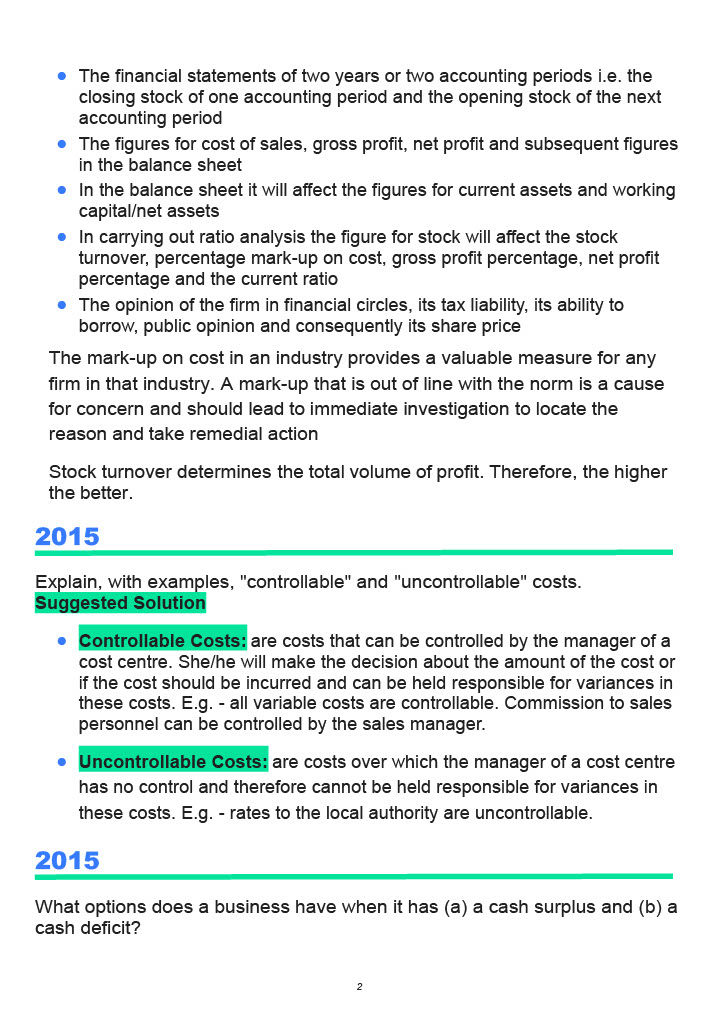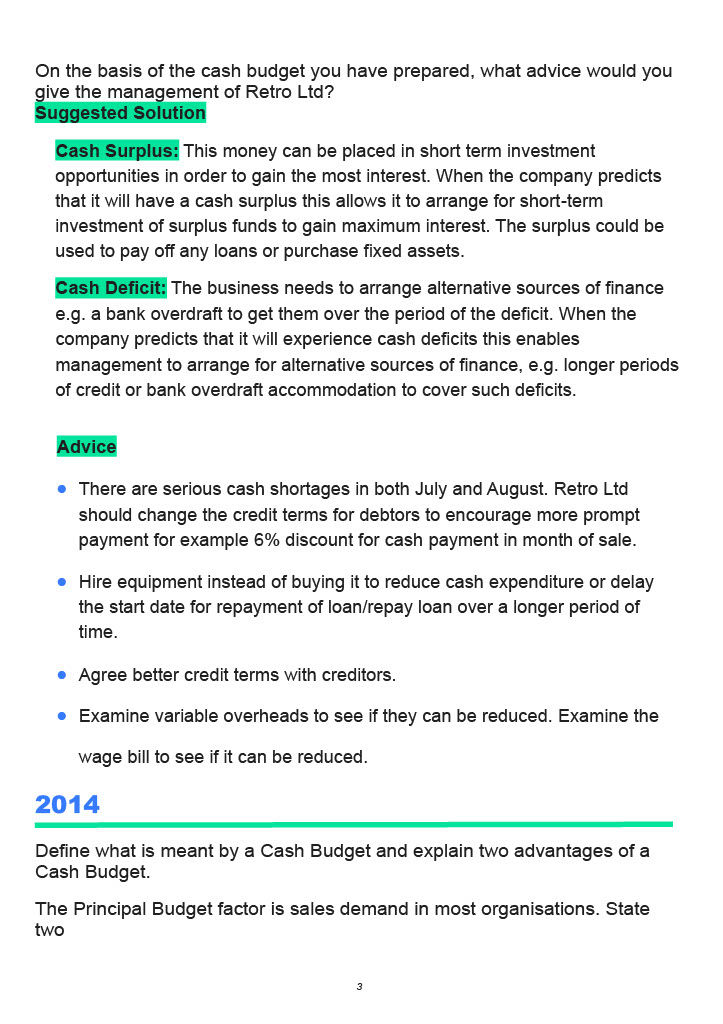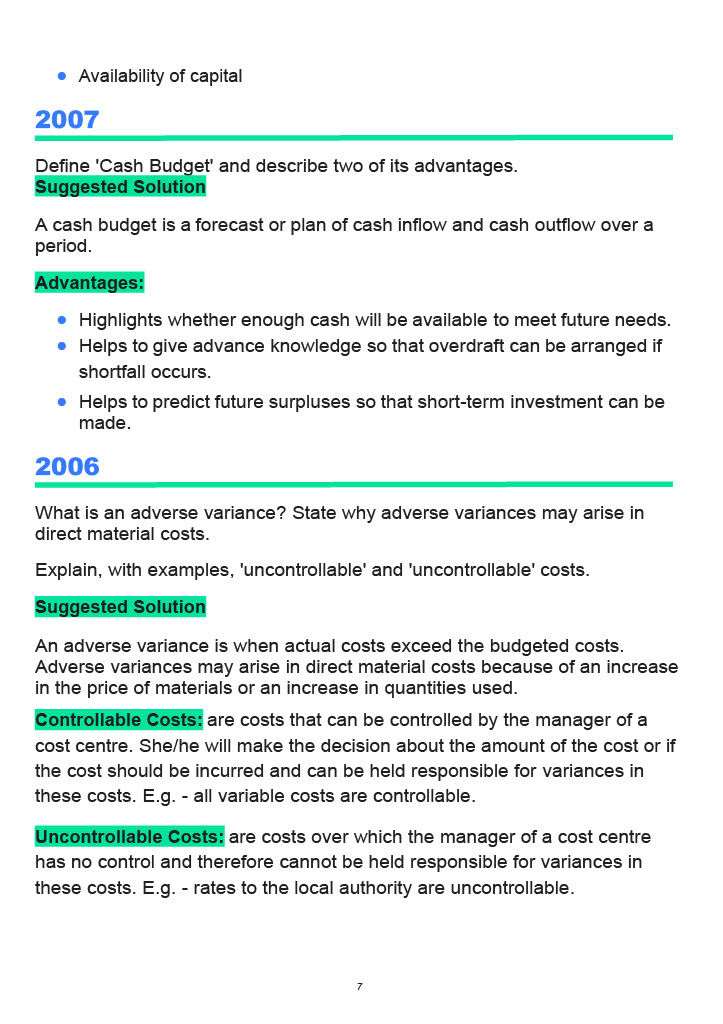Keywords: Leaving Certificate study notes, Leaving Certificate Accounting notes, budgeting, stock valuation, financial budgeting, budget preparation, cost control, inventory valuation, stock costing methods, budget variance analysis, financial planning.
Key Lessons: Budgeting/Stock Valuation in Leaving Certificate Accounting The Prudence Concept in Stock Valuation: Closing stock should be valued at the lower of cost or net realizable value to ensure profits are not overstated, adhering to the prudence concept. This approach accounts for potential losses and ensures accurate financial reporting. The Importance of Budgeting: Regular budgets act as financial roadmaps, enhance staff communication, and help businesses efficiently allocate resources. Comparing budgets with actual performance highlights variances for corrective action. Impact of Incorrect Stock Valuation: Misvaluation of stock affects financial statements across two accounting periods, influencing gross and net profits, balance sheet figures, and key financial ratios, which can damage a business's reputation and financial standing. Controllable vs. Uncontrollable Costs: Managers can influence controllable costs (e.g., sales commissions), while uncontrollable costs (e.g., local authority rates) fall outside their control, emphasizing the need for tailored cost management strategies. Cash Budget Insights: Cash budgets forecast inflows and outflows, enabling businesses to plan for surpluses through investments or deficits via financing. This ensures sufficient funds for daily operations and strategic financial management.
|
Important Takeaways: Leaving Certificate Accounting – Budgeting and Stock Valuation Prudence in Stock Valuation: The prudence concept ensures financial statements remain accurate by valuing stock at the lower of cost or net realizable value, preventing overstated profits and unrecognized losses. Benefits of Regular Budgeting: Budgets are essential for planning, improving communication, and ensuring resource efficiency. They help identify variances between planned and actual performance, enabling corrective actions. Consequences of Incorrect Stock Valuation: Misvalued stock affects profit calculations, balance sheets, and financial ratios across multiple periods. This can harm a business’s credibility and decision-making. Understanding Costs: Controllable costs, such as variable expenses, are within a manager's control, while uncontrollable costs, like local authority rates, require strategic planning to mitigate their impact. Cash Budgeting Essentials: Cash budgets provide insights into cash surpluses or deficits, helping businesses prepare for short-term investments or financing needs. They are key to maintaining smooth operations and meeting financial obligations.
|
Keywords: Leaving Certificate study notes, Leaving Certificate Accounting notes, budgeting, stock valuation, financial budgeting, budget preparation, cost control, inventory valuation, stock costing methods, budget variance analysis, financial planning.











Comments